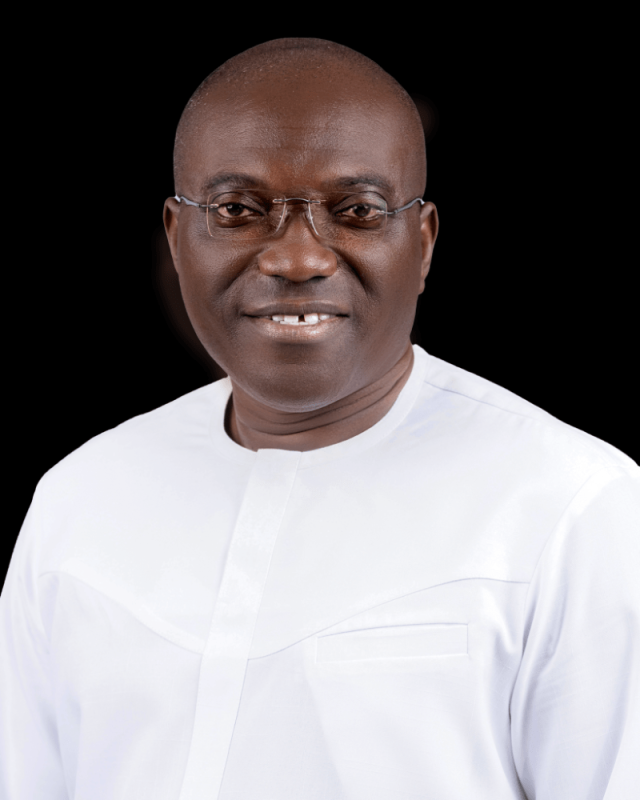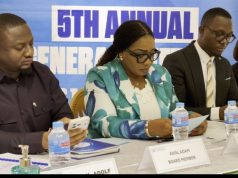By Rebecca Ekpe
Under the auspices of the Ministry of Local Government, Decentralization and Rural Development, the Ghana Urban Forum (2024) under the Theme: “Nurturing Roots, Growing Futures: Combining Policies and Partnerships for Urban Resilience and Transformation opens in Accra from 4th -5th June, 2024.
This is the first comprehensive assignment of the New Local Government, Decentralization and Rural Development Minister, Martin Adjei-Korsah (MP), since he was sworn into office, May 2024.
The two-day Urban Forum to be held at the Labadi Beach Hotel in Accra, is congregating key Speakers from Academia and Practitioners. It will see participants from representatives of the De-concentrated Agencies, Specialized Agencies and Funds, Development Partners, Civil Society and other key stakeholders.
Organizers envisage the 2024 Urban Forum will close having produced a Higher Level Policy dialogue comprehensive report on all discussions to serve as a reference for all stakeholders, which would become a working document for the Metropolitan, Municipal and District Assemblies (MMDAs).

Local Governance and Decentralization:
The Director for Local Governance and Decentralization, Samuel Seth Passah in an interview said ”the forum will be deliberating on critical urban issues affecting Ghanaian cities, and it is considered one of the premier platforms for addressing urban development and management issues, which can inform the design of future programs and projects. Additionally, the forum aims to foster effective partnerships and strengthen inter-sectoral collaboration to ensure collective progress as a nation”.
Above all, Mr. Passah said, ”the two-day event will also focus on defining urban areas. The goal is that by the end of the forum, all issues will be thoroughly examined, and Ministries and Departments will be able to track the performance of their various programs and projects in response to the discussions”, the Director posited.
Research, Monitoring and Evaluation:
The Director for Research, Monitoring, and Evaluation at the Land Use and Spatial Planning Authority, Mohammed Alhassan Damba indicates that this year’s Urban Forum promises to be particularly exciting, as it marks the 8th event in the series.
‘’This forum is designed to provide opportunities for stakeholders and players in the urban space to discuss issues of common and national interest, and to collaboratively develop strategies to address these challenges’’.
According to him, the aim is to maximize resource use, eliminate overlaps, and reduce waste. Additionally, the forum will enable participants to understand what various organizations are doing, disseminate information on implementation actions, upcoming plans, funding regimes, and existing networks for urban improvement.
‘’The forum is highly relevant to the Land Use and Spatial Planning Authority (LUSPA), given their mandate to ensure the judicious use of land and other spatial elements. The Urban Forum offers LUSPA a platform to interact with a broad range of stakeholders. Their mandate covers not only land management but also the space above, the subterranean space underground, and marine areas. This event provides LUSPA with an opportunity to inform the public about the full scope of its mandate, fostering greater collaboration and achieving the desired outcomes for urban development’’.
Mr. Damba urged stakeholders and the general public to follow, join, and share all links associated with the forum on social media platforms. ‘’This will ensure broad participation, facilitate the exchange of ideas, promote learning, and collectively improve the future of our urban spaces’’, he noted.
Greater Accra Resilient and Integrated Development (GARID):
‘’Inefficiency in urban management negatively impacts residents’ quality of life’’. The Greater Accra Resilient and Integrated Development (GARID) Project Coordinator, Ohene K. Sarfoh points out the significance of the National Urban Forum as a vital platform that brings together various interest groups within the urban ecosystem. He noted that, ‘’for a long time, there has been a lack of focus on how cities and towns are actually developing. While urban development has often been considered at the central level, it involves multiple sectors that must interact to effectively manage the nature of our settlements’’, he stressed.
The Urban Forum provides an opportunity for ‘’these diverse interest groups to collaborate and think collectively’’.
According to Mr. Sarfoh, it is a valuable tool for comprehensively addressing the challenges faced in urban spaces.
‘’The Ministry of Local Government has done commendable work in sustaining these forums over the years, and there is hope that they will continue to push this initiative further. The goal is to decentralize the forum so that, in addition to the National Urban Forum, there will be specific platforms such as the Accra Urban Forum, Kumasi Urban Forum, and Tamale Urban Forum’’.
He added that, the forum is particularly beneficial for explaining GARID’s work, which focuses on enhancing the flood resilience of the Greater Accra Metropolitan Area.
‘’It offers an opportunity to share experiences, engage with thought leaders in the sector, and gather feedback on current plans. This interaction helps to determine whether there is a need to change strategies or scale up existing initiatives. The forum also facilitates learning from other interventions and identifying opportunities for synergy with ongoing projects’’.
Given the rapid urbanization observed following the 2021 census, this forum comes at a critical time for Ghana as it moves towards becoming a highly urbanized country.
‘’All interest groups are encouraged to participate in the discussions to articulate, outline, and identify critical bottlenecks, and to brainstorm solutions’’, Mr. Sarfoh stated.
A unique aspect of this platform is its inclusivity; it allows for in-person attendance and also enables participation from various interest groups beyond Ghana’s borders through different online platforms.















